Race to Road: How WorldSBK success has shaped Ducati's legendary sportsbikes
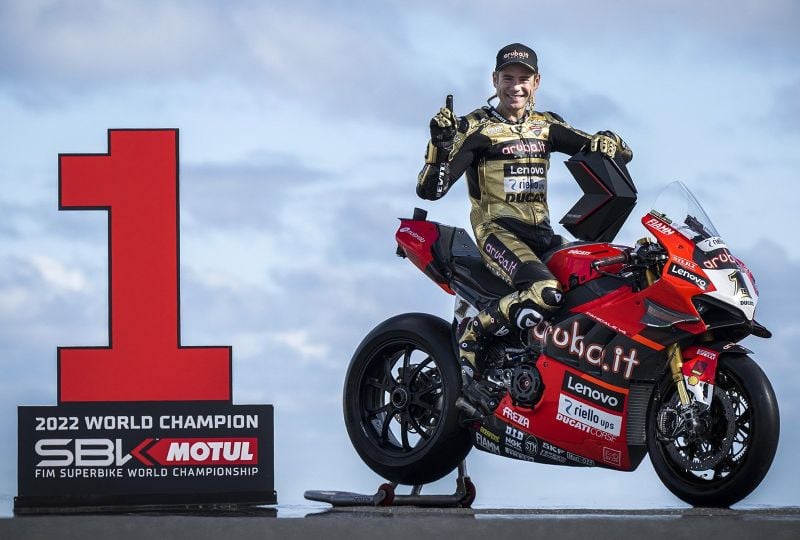
Win on Sunday, sell on Monday.
It’s an old adage, but it’s certainly a good one, extolling the notion that seeing Carl ‘Foggy’ Fogarty topping the podium on a Sunday afternoon is the perfect marketing inspiration that’ll get Joe Public in the dealership on Monday morning to hand over a deposit.
It’s a strategy that has served many top manufacturers well over the years, but for Ducati, competing – and succeeding - in motorsport isn’t just for impressing would-be customers. It’s to also innovate and strengthen the roadgoing equivalent, and vice versa.
Indeed, Ducati has classically blurred the lines between the machines it races with and the models it sells to such an extent that today there isn’t much splitting Alvaro Bautista’s WorldSBK race-winning Panigale V4 R with the model you or I could ride to Tesco on.
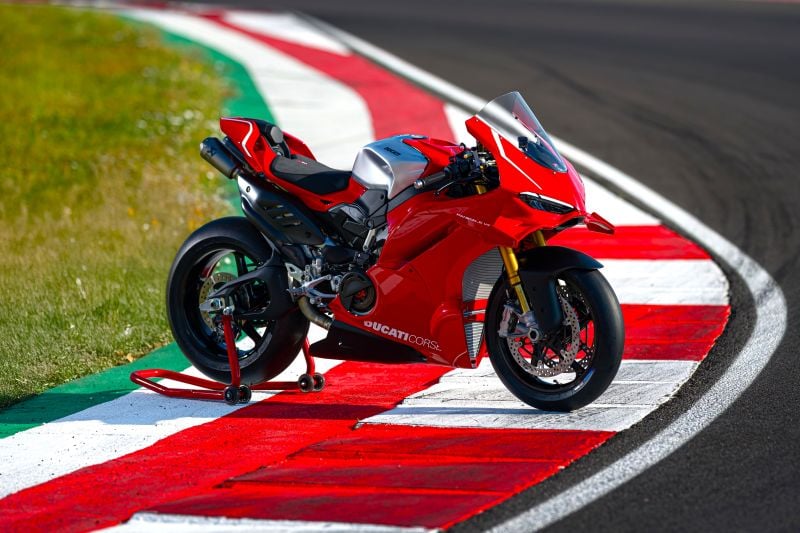
It’s a philosophy that has driven Ducati to immense success in the WorldSBK Championship, an international motorcycle racing series comprising production machinery that the firm has maintained a presence in since its inaugural season in 1988.
Some 32-years later, Ducati holds a record-breaking 20 Manufacturers’ titles, 16 Riders’ Championship successes and a whopping 445 race wins.
It’s a success forged on the back of legends – riders and bikes – over three plus-decades, so as Ducati prepares to launch the latest evolution of its Ducati Panigale V4 R flagship, let’s all enjoy a race down memory lane at Ducati’s WorldSBK/sportsbike greatest hits.
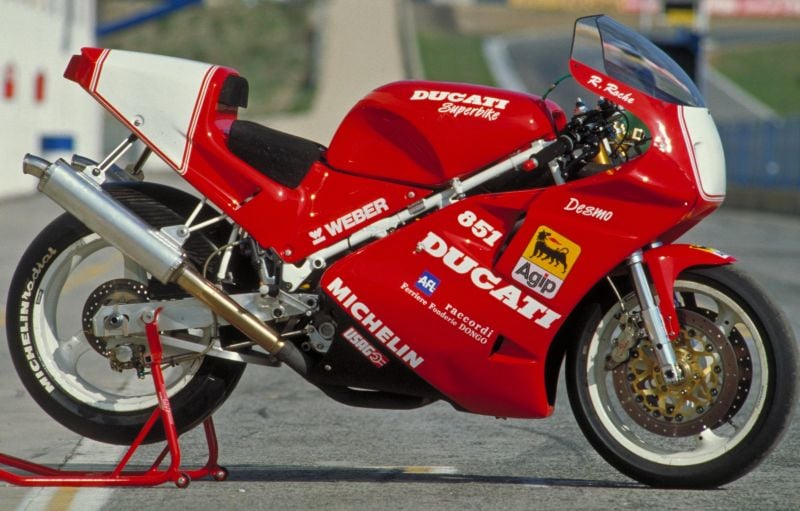
Ducati 851
Launched in 1987, the Ducati 851 would have the distinction of heralding the manufacturer’s first foray into motorsport upon the WorldSBK Championship being inaugurated the following year.
Equipped with an 851cc V-Twin engine boasting 93hp, the Ducati 851 succeeded the 750 F1 and acted as the firm’s weapon of choice on track. After a race-winning turn in 1988 and 1989, Raymond Roche clinched Ducati’s first WorldSBK title on the 851 in 1990.
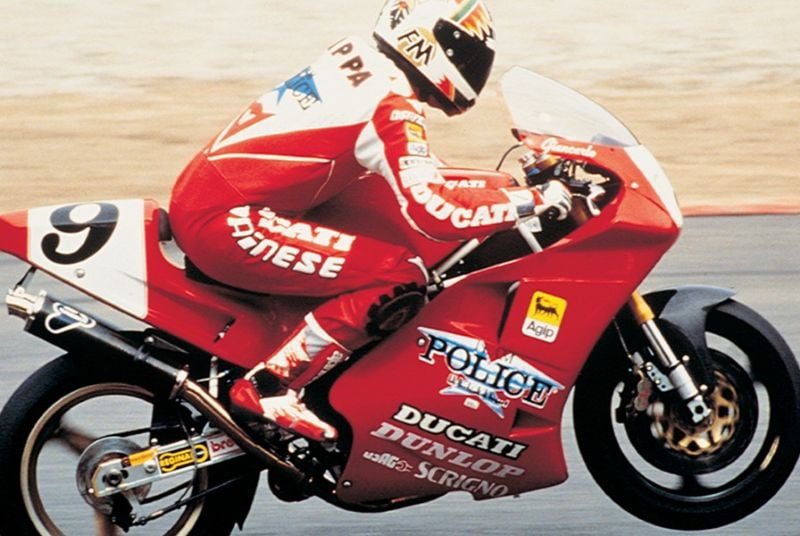
Ducati 888
The technically similar but larger capacity Ducati 888 replaced the 851 in 1991 and promptly extended the manufacturer's newfound habit for winning on the race track.
American racer Doug Polen successfully defended Ducati's throne in 1991 before following it up with back-to-back titles in 1992.
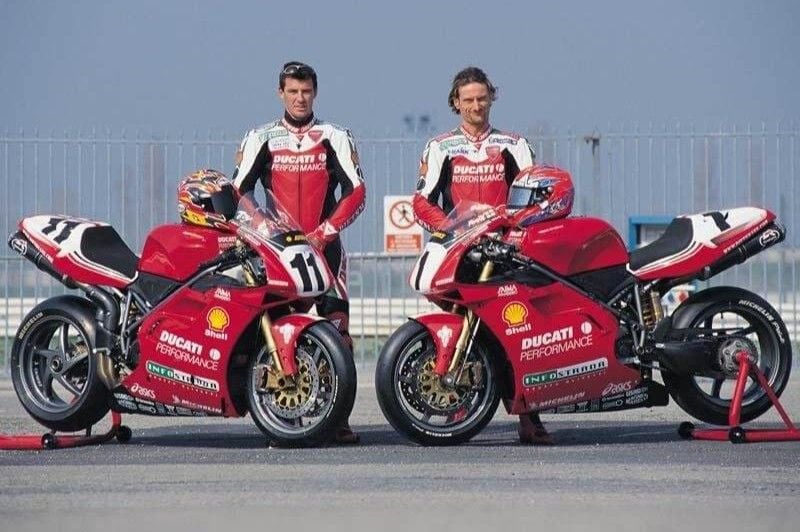
Ducati 916
A surefire contender for the title of ‘most iconic motorcycle of all-time’, the era-defining Ducati 916 not only wowed journalists and swooned bikers, but it would also prove as devastatingly quick on track as it was devastatingly beautiful.
With that timeless Massimmo Tamburini-penned body shrouding a 916cc V-Twin engine, the 916’s power was hiked to 114hp, while it featured innovative under seat exhausts and – in a sure sign of how road bike design is shaped by racing – featured a single-sided swingarm to make mid-race wheel changes quicker.
Debuting on track in 1994, the Ducati 916 was an instant success in the hands of Carl Fogarty, the Briton affectionately known as ‘Foggy’ winning three titles on the machine in 1994, 1995 and 1998, while Troy Corser also landed a crown in 1996.
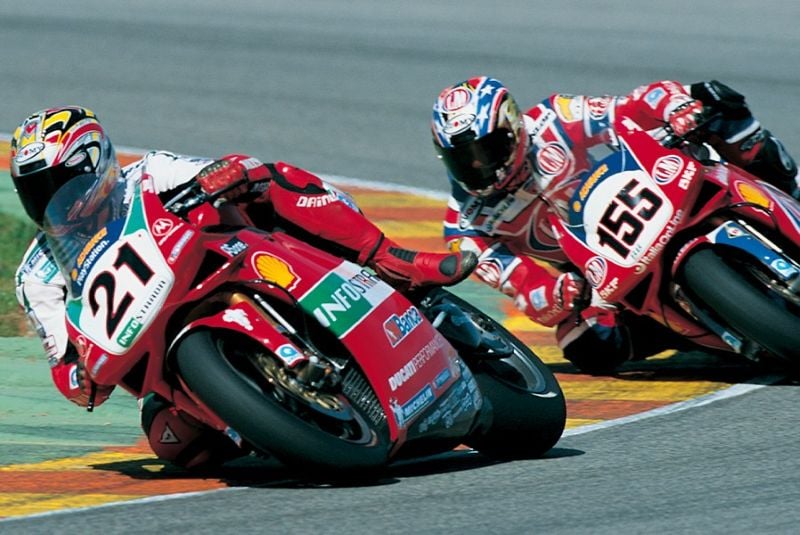
Ducati 996
New for 1999, the Ducati 996 didn’t change a winning formula with revisions centred around the re-worked 996cc engine, air box and exhaust system.
As such, it continued where the 916 left off on the track with Fogarty notching up his fourth and final title win in 1999 before Troy Bayliss achieved his maiden title success in 2001.
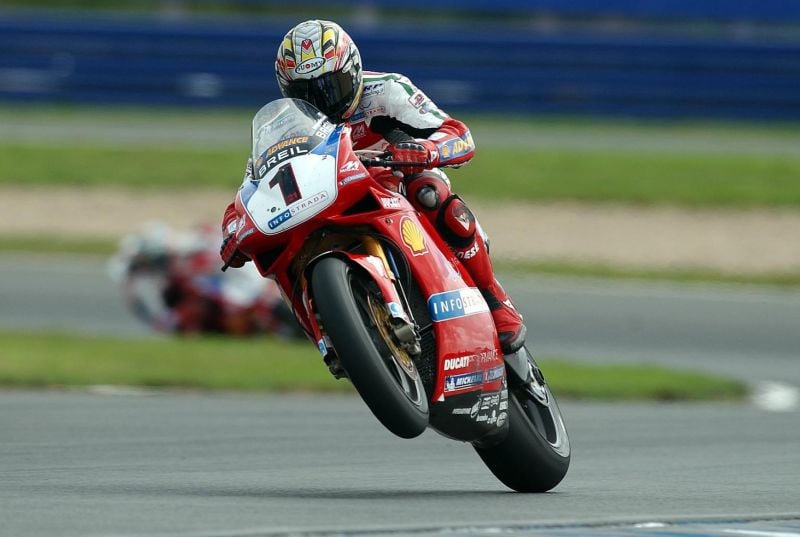
Ducati 998
The Ducati 998 arrived for a short run in 2002 offering another power rise to 123hp and re-designed cylinder heads.
A racier 998 R was subsequently spun-off featuring different crankcases and would go on to be homologated to race in WorldSBK.
It would enjoy just a single season of racing action, however, with Bayliss just missing out on the 2002 WorldSBK title to Honda’s Colin Edwards.
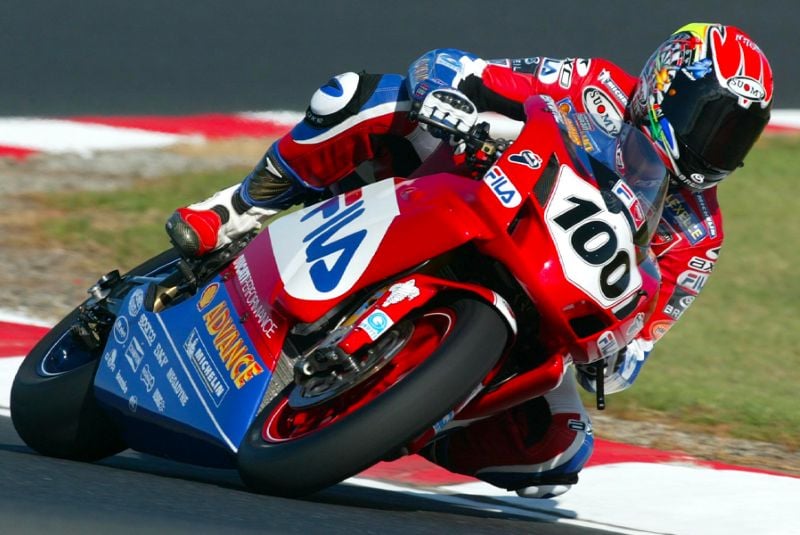
Ducati 999
Ducati’s flagship sportsbike underwent its biggest transformation since the 916 a decade earlier with the 2003 launch of the Ducati 999.
While the unusually-styled front-end design proved divisive, the 999 – with its L-Twin Desmodromic Valve engine layout and trellis frame - was universally acclaimed for its performance and handling.
It proceeded to do its talking on track too with the 999 emerging as a WorldSBK title winner in 2003, 2004 and 2006 with Neil Hodgson, James Toseland and Bayliss respectively.
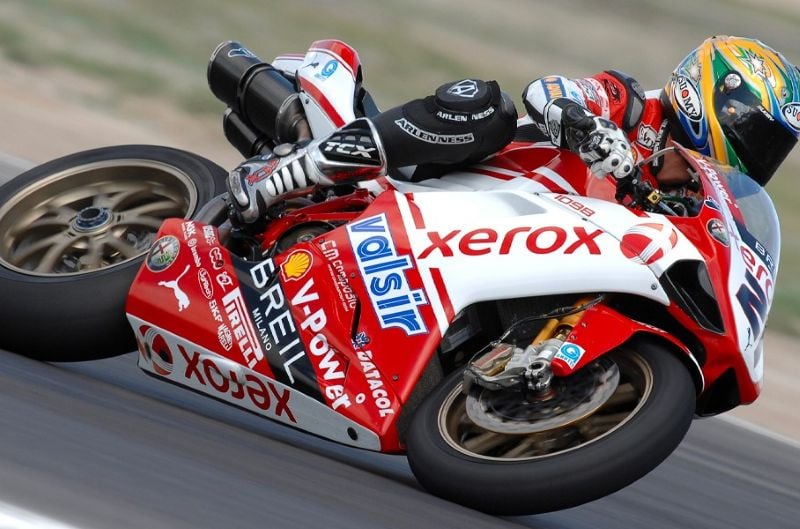
Ducati 1098
With WorldSBK regulations in the early 2000s stipulating that eligible race machines couldn’t exceed 999cc to ensure balance of performance, Ducati puts those rules to the test with the launch of the Ducati 1098 in 2007.
Having settled on an ineligible 1098cc V-Twin engine, Ducati petitioned for a relaxing of the regulations by arguing its signature layouts would give away too much power to rivals if they were restricted to less than 1000cc.
Regulators eventually backed down and increased engine capacity to 1200cc (for twin-cylinder entries only), despite protests from other manufacturers.
Getting its race debut in 2008, the Ducati 1098R swept to the title in the hands of Troy Bayliss, who capped off a stellar racing career with a third and final WorldSBK success.
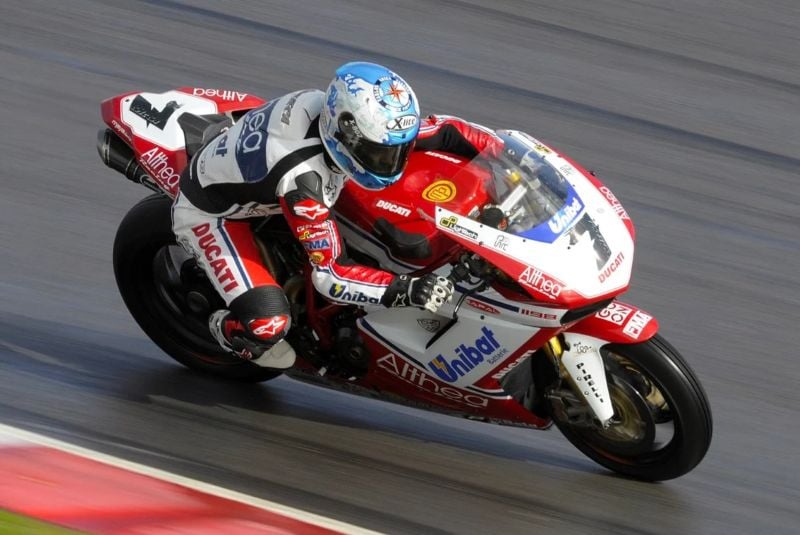
Ducati 1198
Despite sharing design elements with the 1098, the Ducati 1198 introduced a larger engine, more power and lighter fairings in a bid to give it the edge on track.
The strategy worked as Carlos Checa upset the factory favourites to win the 2011 WorldSBK title on privateer machinery.
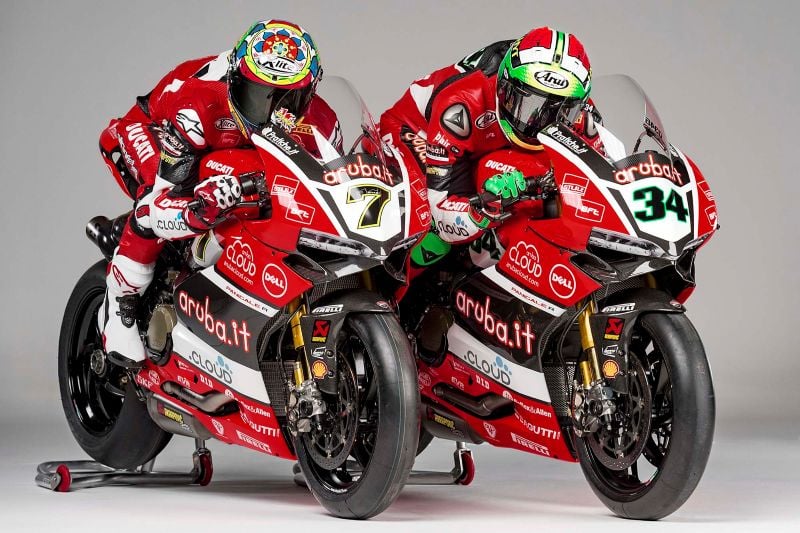
Ducati 1199 Panigale
Launched in 2012, the Ducati 1199 would be the first sportsbike adorned with the ‘Panigale’ moniker in a nod to the Italian firm’s factory base in Borgo Panigale, Italy.
Ducati claimed its 195bhp made the Panigale most powerful production motorcycle in the world at that time, as well as having standard setting power-to-weight and torque-to-weight ratios.
Though celebrated by the press, the 1199 Panigale endured an untypically difficult route to competitiveness in WorldSBK. Debuting in 2013, the 1199 Panigale wouldn’t become a race winner until 2015.
Over the next four seasons though Ducati were back at the sharp end in the hands of Chaz Davies, who’d finish runner-up in three of those campaigns in 2015, 2017 and 2018.
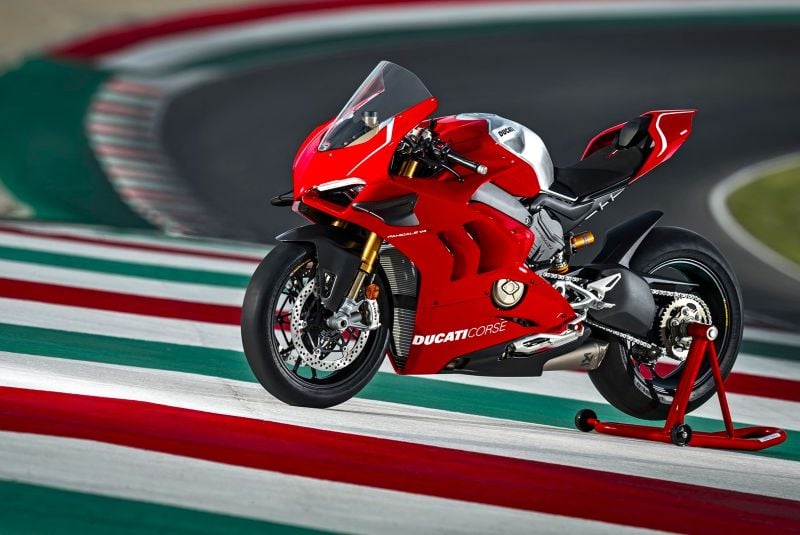
Ducati Panigale V4 R
For 2018, Ducati’s premier sportsbike underwent a major re-engineer to swap out its long-serving V-Twin engine layout for a V4.
The move didn’t come without its challenges though with the V4’s 1103cc engine making it ineligible to race in WorldSBK under rules that had reverted to the 999cc capacity limit.
However, rather than lobby regulators as they did with the 1098, Ducati instead went away and modified the engine down to 999cc to create the Ducati Panigale V4 R as the model it would homologate to race.
With the original 1103cc engine available in the Panigale V4 S, the V4 R was therefore an opportunity for Ducati to develop an exclusive high performance, technically innovative machine that would narrow the gap between road legal motorcycle and roaring race bike.
The V4 R made its race debut for the 2019 season and proceeded to steamroll its way to the victory in its first 11 races in the hands of Alvaro Bautista.
Though a sharp decline in fortunes for Bautista mid-season saw the title momentum shift away from him that year, the Spaniard made amends by achieving an unprecedented 40 wins en route to the 2022 and 2023 titles.
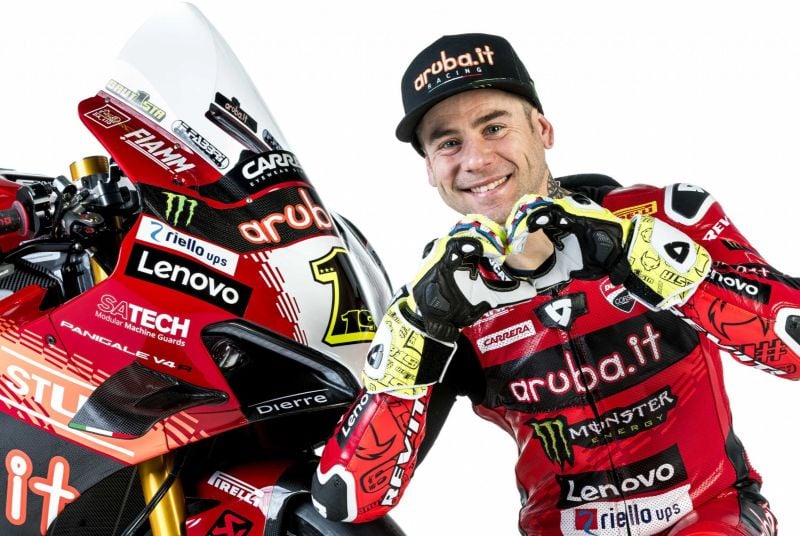
Ducati WorldSBK Riders’ Championship Titles
1990 – Raymond Roche (Ducati 851)
1991 – Doug Polen (Ducati 888)
1992 – Doug Polen (Ducati 888)
1994 – Carl Fogarty (Ducati 916)
1995 – Carl Fogarty (Ducati 916)
1996 – Troy Corser (Ducati 916)
1998 – Carl Fogarty (Ducati 916)
1999 – Carl Fogarty (Ducati 996)
2001 – Troy Bayliss (Ducati 996)
2003 – Neil Hodgson (Ducati 999)
2004 – James Toseland (Ducati 999)
2006 – Troy Bayliss (Ducati 999)
2008 – Troy Bayliss (Ducati 1098)
2011 – Carlos Checa (Ducati 1198)
2022 – Alvaro Bautista (Ducati Panigale V4 R)
2023 – Alvaro Bautista (Ducati Panigale V4 R)